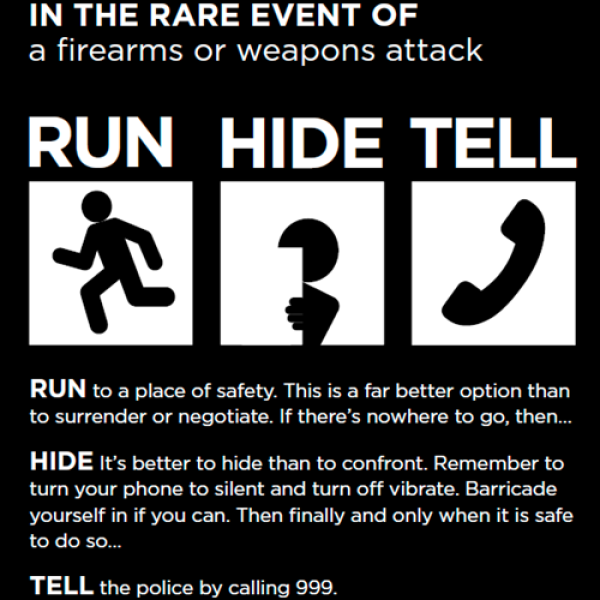
About radicalisation
Radicalisation is the process by which people come to support terrorism and violent extremism, and in some cases, to participate in terrorist groups.
There is no single profile of a person who is likely to become involved in extremism, and there is no single indicator of when someone might use violence in support of extremist ideas.
The process of radicalisation is different for every person and can take place over an extended period or within a very short time frame.
Prevent
There are three main areas of concern that need to be addressed in order to prevent radicalisation
Increasing understanding of radicalisation and the various forms it might take.
This will help people to recognise the signs and indicators of radicalisation.
Identifying a range of interventions to support people who are at risk of radicalisation.
These interventions should be tailored to the individual's needs and circumstances.
Taking appropriate measures to safeguard people living with or in direct contact with known extremists.
This may involve providing support to the individual or their family, or taking steps to protect them from harm.
Channel
Channel is a programme that provides multi-agency support to people who are assessed as being vulnerable to supporting violent extremism. The support is tailored to each case and can include help with family problems, mental health, mentoring, religious support, and more.
People who are referred to Channel are not criminals, but they may be at risk of committing an offence if not supported.
The programme can provide training for staff in partner agencies (such as Education, Health, Prison, Probation, Youth Offending, Fire Service, Police etc) and key organisations within the private sector. The training facilitates organisations to identify individuals who may be at risk of supporting violent extremism and how to refer them for support.
An escalation process to strategic governance is in place for the Channel Panel. This process is publicised to panel members and partners.
For further details of this process please contact Lindsey Heaton Service Manager Quality Assurance Service, Chair of Channel Panel.
Contact details 07766780354.
Support for organisations and individuals to challenge extremist ideology
Many people and groups want to actively work to change extremist ideology and uphold the values of tolerance, democracy, cohesion, equality, the rule of law, and freedom of speech. This is most powerful when it comes from within communities themselves. Knowsley Prevent Action Plan will identify and encourage community-based activities and projects to help this to happen.
Report
If you see it, or suspect it, report it.
If you are worried about someone and think they may be at risk of getting involved in terrorism or extremism, you must complete the referral form below.
Once completed, email to both of the addresses below.
Knowsleymash@knowsley.gov.uk
prevent@merseyside.police.uk
Please provide as much information as you can.
Report online
You can report online material promoting terrorism or extremism on the Government website.
Telephone
If you consider anything to be suspicious or connected with terrorism, contact the Anti-Terrorist Hotline on 0800 789 321.
If you believe someone is at risk of radicalisation, call the Knowsley Multi-Agency Safeguarding Hub on 0151 443 2600.
If there is an ongoing incident, contact the police on 999.